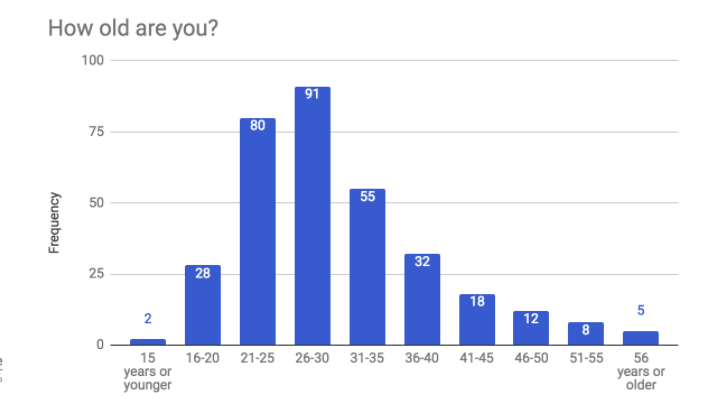There are significant events that take place on the pathway to success.
A couple decades back, there was the run up in the stock market due to the Dotcom bubble. After registering enormous gains, the bubble burst, sending prices plummeting. This ended the Internet era.
Or did it?
As we all know, the Internet continued to develop and grow. The bust of the markets only washed away the excess. Those projects that stood little chance of success were eliminated. Capital dried up and some sanity returned.
In the meantime, programmers keep developing and progress was made. Over time, through consistent action, growth took place. It was around this time that we started to see the move towards Web 2.0, with two way communication, video, and an assortment of other features entering the picture.
Now, even 20 years later, when the Dotcom bubble is mentioned, most everyone knows what it means.

COVID-19 is going to have the same place in history. In a couple decades, when people mention "The Virus", most will know what is being referred to. It is an event that is marked in time.
It is also one that is causing a great deal of change. Many are discussing what the "New Normal" looks like. While there are projections all over the place, the bottom line is things are not going back to how they were.
One thing that I believe is safe to conclude is the push towards digital increased in pace. What was a steady trend for two decades just entered warp drive. For example, the move towards online shopping was growing; now it exploded. People who are locked in their homes are doing most of their shopping on sites such as Amazon. Millions of people who didn't shop there before suddenly are.
Netflix is seeing its subscriber base grow significantly. I am sure the same is being realize by Hulu and Disney+. People are stuck at home, thus they are seeking different forms of entertainment.
On the work side, we see video conferencing taking off. This is a technology that was around for a long time yet was not widely adopted. Companies still opted to continue business as usual. That was, right up, until the virus. Now a company like Zoom is seeing it user base cross 200 million. Two months ago, few people were even aware of the company.
So what does this all have to do with cryptocurrecy?
The push towards digitization is now enhancing the idea of digital money. Suddenly, it is not a concept that is as foreign as it once was. While this is not an overnight process, we are seeing the foundation laid for further adoption. As society becomes more digital, there will be more people embracing this for of monetary transaction.
COVID-19 is a game changer for many parts of society, including cryptocurrency.
We already know the demographics of cryptocurrency.
It is not accepted by many who are in the first half of the baby boomers. The second half is a bit more technologically adept, but their adoption rates are very low.
Generation X can go either way with technology, some embracing it, others rejecting it. While the number of crypto users is greater than the Boomers, it is still not the highest.
The Millennials and Gen Z are the technology people. These individuals grew up with change and embrace technology, for the most part. Thus, they are more apt to engage in cryptocurrency than their older counterparts. They are also more likely to trust crypto over gold and the stock markets.

This was a survey conducted on Reddit a few years ago. While things have changed some, it questioned the number of times one checked cryptocurrency pricing. The demographic breakdown is as we can expect.
What is important to note is that the Boomers and Generation X were just thrust deeper into the digital world. Millions who never used an application such as Skype are now video conferencing. It was something that was resided yet is now part of their everyday lives.
People often resist change. In this situation, it was thrust upon them.
This can only be good news for cryptocurreny. While it will not be an overnight process, this shift is going to open the doors for greater adoption. As people delve further into the digital world and it becomes more common, they will be exposed to crypto. It is something they are not going to be able to avoid.
In my mind, it is akin to email. I remember in the early 2000s this question being asked: do you have email? At that time, there was a better than average change that people said no. Of course, a few years later the question became: what is your email address?
I can see the same thing happening with cryptocurrency. At some point, we are simply going to ask, what is your wallet address? This is how people are simply going to make payments.
If you found this article informative, please give an upvote and rehive.

gif by @doze

Posted Using LeoFinance
Yes today is not like tomorrow, things change as I said the older people are still resisting the era of digital currencies, but this will not last long. We see things moving quietly in digital currencies, perhaps the Corona epidemic will be the motivation to accelerate dependence on electronic currencies. I hope so thank you.
Posted Using LeoFinance
Hey, @taskmaster4450.
This particular round of the coronavirus has had a significant impact on our lives, and it will only deepen the longer the virus hangs around and the lockdowns continue. With some states and places around the world trying to get out of it now, we're at a nexus point as to whether or not COVID-19 becomes another mark in history, or a game changing agent. I think people have a tendency to forget way before they should about things that don't end up lasting longer, and even with things that do, like the Great Depression, or WWII, at some point, maybe a generation or two later, maybe a bit more, the horrors and lessons of that period are forgotten, and somewhere down the line, the people of the new point in time find themselves right back where their great or great great grandparents were.
So, we'll see. As it is, I don't see my life changing that much, unless I'm forced to change it. Whether that will be the case is what I'm most concerned about, rather than the virus itself. There is the virus, and there is the response to it, and while the news media and leaders like to think of it as one and the same, it really isn't. And being able to make that distinction, when it comes to unburying ourselves from the potential damage the economic lockdown is doing, will determine what direction our country and world goes.
re: the technology people
I get where you're going with this, and I agree—each successive generation is able to pick up the existing technology of the time, and what follows it, quite a bit easier because they're growing up with it. There is no other way of doing it.
I don't consider them to be any more tech savvy though than their predecessors, considering that in large part, some other generation is involved in developing it for them. In fact, I could probably argue that many, if not most, of these newer generations know less about the technology simply because they don't need to. The technology does most of the work for them. The fact they can make their way around a device, in and out of apps, and find some use case for them, isn't quite the same, in my mind, as being the technology people.
Technology surrounds us. It's in everything we own, and in most of what we do. It's part of the clothes we wear, and the cars we drive and the houses we live in and the food we eat. Technology is much more than just some smartphone, the internet and a popular app. As I said, I'm not taking issue with the premise of these youngest generations being able to pick up something and use it. I'm just saying I look at technology as an ongoing thing that has been around for much longer. The velocity is faster than ever before, but at some point, most of these young ones will find themselves on the other end and falling behind the times just as the boomers and Xers are now.